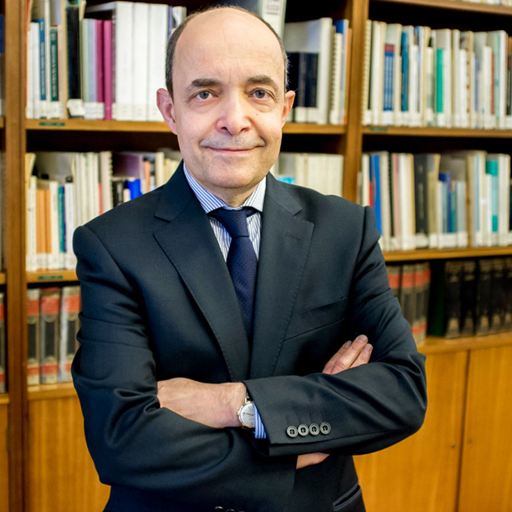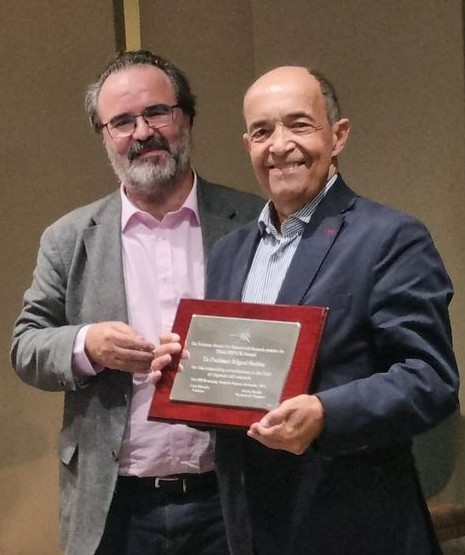
|
|
|
About ESPCR2024 > Awards
News: The ESPCR has now conferred six travel awards to early-career researchers attending the 25th annual meeting in Marseille, two of which from the Vitiligo European Task Force (VETF). The awards committee was impressed by the quality of all competing applications and thanks all of our younger members who will be presenting at the forthcoming conference.
Congratulations to:
- Yael Noy (Weizmann Institute, Israel)
- Zahraa Fakih (University of Bordeaux, France)
- Nicole Rachinger (Friedrich-Alexander University Erlangen-Nürnberg, Germany)
- Akiko Omori (Osaka University, Japan, and Padova University, Italy)
- VETF: Vinod Kumar (Department of Dermatology, Postgraduate Institute of Medical Education and Research, Chandigarh, India)
- VETF: João Charneca (Universidade NOVA de Lisboa, Portugal)
---
The ESPCR award recognizes and acknowledges senior scientists who have made outstanding contributions to the field of pigment cell research.
The 2024 ESPCR award has been made to Professor Miguel Seabra, Principal Investigator at NOVA Medical School, Lisbon, Portugal. 

Miguel C Seabra, MD, PhD, is a leading researcher in the field of cellular and molecular medicine. Prof. Seabra holds a PhD from University of Texas Southwestern Medical Center (1992), where he was an Assistant Professor, before moving to the Faculty of Medicine, Imperial College London, where he became Full Professor and head of Section until 2007. Currently Full Professor at the Medical School of the Universidade Nova de Lisboa, Portugal, Prof. Seabra coordinates research in Cellular and Molecular Medicine and holds several chairs. Formerly Head of the Global Eye Initiative at Fundação Champalimaud, Prof. Seabra was president of Fundação para a Ciência e a Tecnologia (FCT), the Portuguese public funding agency for science and research in Portugal from 2012 to 2015.
The Seabra research group has made major fundamental and translational contributions to understanding the roles of Retinal Pigment Epithelium (RPE) cells, a highly specialized layer of cells in the eye and a fundamental component of the visual unit. In many retinal disorders, including aging, photoreceptor degeneration occurs as a consequence of RPE dysfunction. Prof. Seabra has lead his team to investigate these cellular interactions and propose new therapeutic approaches to preventing or curing loss of vision.
The ESPCR Award is given at annual ESPCR meetings (every first meeting after the corresponding IPCC conference, thus every three years) and is associated with a Keynote Lecture of the awarded researcher. The next will be awarded on Friday, 18 October 2024.
The first recipient of the ESPCR Award in 2019 was Prof. Alain Taïeb (Bordeaux, France), who received this distinction at the 2018 ESPCR meeting in Rennes (France). Prof. Alain Taïeb has made extraordinary and numerous outstanding contributions to the field of pigment cell research, in particular to the field of vitiligo research and the use of pigmented skin construct models. He has directed the national Rare Skin Disease Reference Center and is former director of the INSERM research unit 1035 at the University of Bordeaux.
The second recipient in 2021, at our online meeting, was Prof. Mauro Picardo (Rome, Italy), who has studied skin biochemistry and metabolism, free radical-mediated damage, lipidomics, mechanisms of control of skin pigmentation and its disorders, especially vitiligo and aging. He is professor at the Camillus University medical school of Rome and from 1999 to 2021 was the chair of the Integrated Center of Metabolomic Research (CIRM) at the San Gallicano Dermatological Institute, also in Rome.
The ESPCR has established now three distinct honorific awards in addition to annual travel awards for selected abstract submissions:
- ESPCR Award: at every first ESPCR annual meeting after the corresponding IPCC conference (2024)
- Fritz Anders Lecture: at every second ESPCR annual meeting after the corresponding IPCC conference (2025)
- H.S. Raper Medal: at every IPCC conference (next one, October 1-4, 2026)

